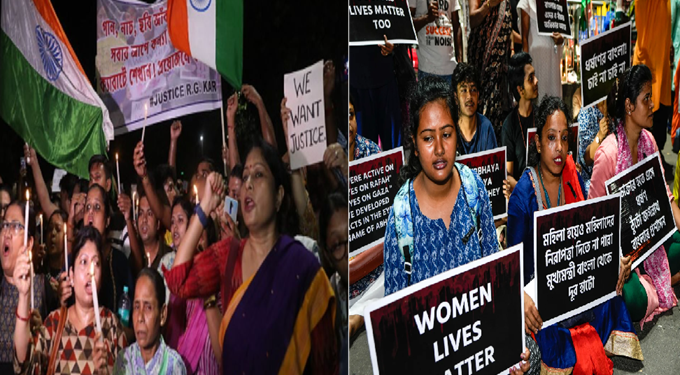The medical community across India is reeling in shock and anger following the brutal rape and murder of a 31-year-old trainee doctor in Kolkata. The incident occurred last week within the premises of a renowned medical college in the eastern city, sending shockwaves throughout the nation and sparking widespread protests. This heinous crime has reignited memories of the 2012 Delhi gang rape, where a 23-year-old student was brutally assaulted and murdered on a moving bus, an event that had previously galvanized the country into demanding stronger laws for the protection of women.
The trainee doctor, who was just beginning her career, was found lifeless in the college where she worked, sparking outrage among her colleagues and the wider medical fraternity. The tragedy has led to a wave of protests by doctors, who are demanding justice for their colleagues and safety in the workplace.
In the days following the incident, doctors across various cities in India have taken to the streets, organizing candlelight vigils and marches to voice their demands. The Indian Medical Association (IMA), the country’s largest body of doctors, has condemned the attack and called for a nationwide shutdown of medical services, except for emergency care, in protest of the incident. The IMA has also called for stringent action against the perpetrators and better security measures in hospitals and medical colleges.
Protest In New Delhi
The protests have gained momentum, with doctors from various states participating in solidarity. In New Delhi, hundreds of doctors gathered at the historic Jantar Mantar to express their anguish and demand justice. Similar scenes were witnessed in Mumbai, Chennai, Bangalore, and other major cities, where doctors walked out of hospitals, holding placards and chanting slogans. The protesters are also calling for the government to implement more robust measures to ensure the safety of healthcare workers, particularly women, in their workplaces.
The incident has once again brought to the forefront the issue of violence against women in India, a problem that continues to plague the nation despite numerous legal reforms. As the protests continue, the medical community, along with the general public, is urging the authorities to take immediate and decisive action to prevent such tragedies from recurring and to ensure that justice is served swiftly.
The situation remains tense, with the IMA warning that the protests will intensify if the demands of the medical community are not met. The case has drawn nationwide attention, and all eyes are now on the authorities to see how they will respond to this grave crisis.

















